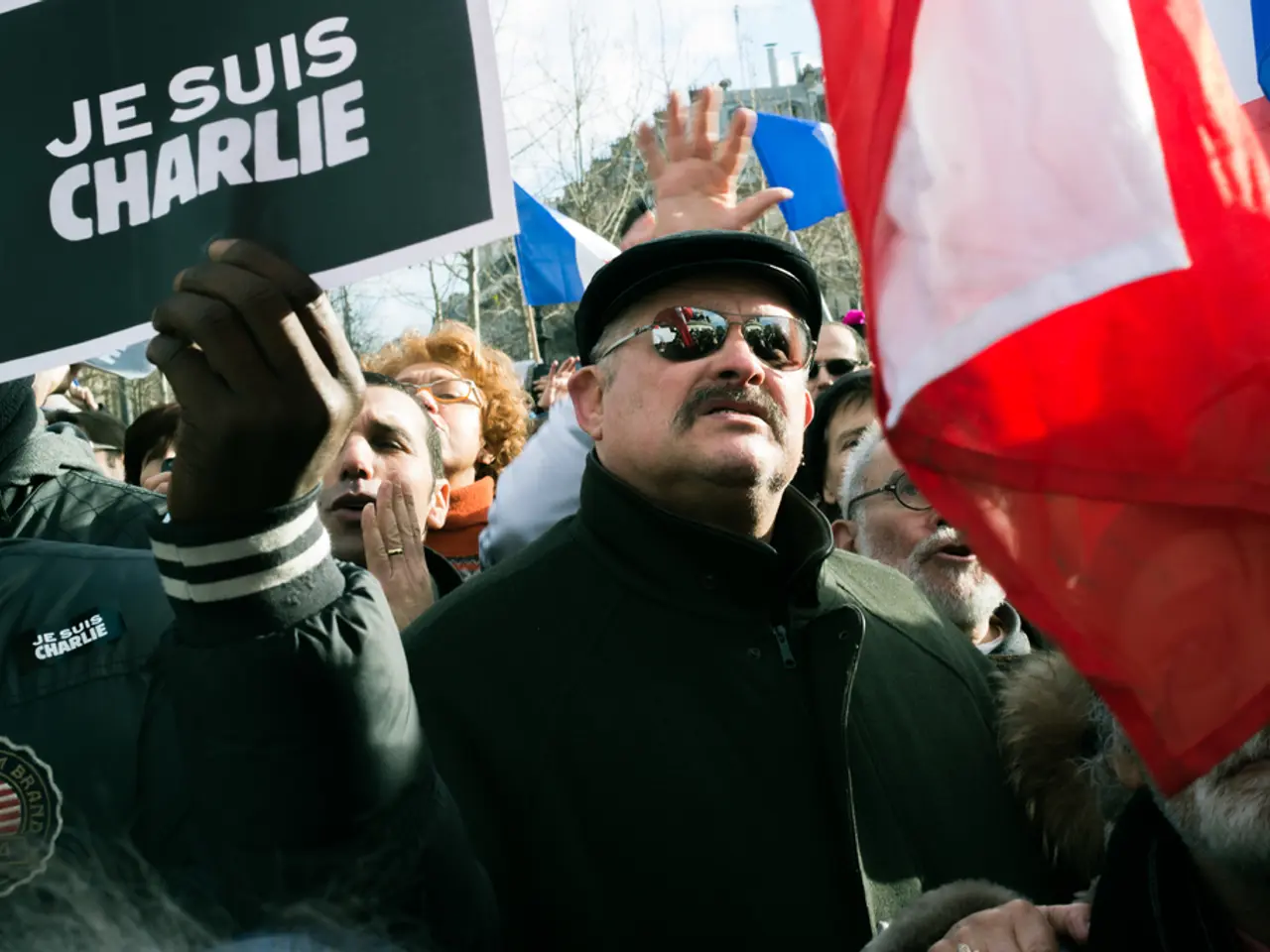Colombia: Secretary Rubio Accuses Petro
News Article: Uncertainty Surrounds Colombia's Political Landscape Amid Elections, Drug Cartels, and Venezuela
A recent assassination in Colombia has sparked concerns about the country's political stability and security, with the democratic crisis of the 90s still looming in the background.
The Assassination of Miguel Uribe
The congressman and precandidate Miguel Uribe was tragically assassinated in Colombia, but the State Department has not explicitly commented on the incident. The assassination does not seem to be a direct cause of political violence or drug trafficking in Colombia, and it is not specified as being part of the democratic crisis that Colombia faced in the 90s.
Political Dynamics
The current political situation in Colombia is marked by significant tension and challenges. President Gustavo Petro, Colombia’s first left-wing president, has sparked concerns of democratic backsliding after bypassing constitutional procedures to push labor reform by popular consultation in June 2025. This move alarmed both right and left political groups, united in fears over Petro's respect for democratic norms and judicial independence. Petro's popularity has declined sharply since his 2022 election, with approval falling from 56% to 35% by 2024 amid corruption scandals, rising violence, and economic struggles.
Drug Cartels and Security
While the 2016 peace agreement with FARC reduced conflict, the security situation remains precarious. New armed groups have emerged competing for territory and illicit economies, including drug trafficking. Rural reform and full implementation of the peace accord lag, complicating reintegration of ex-combatants and control over illegal activities. Attacks on communities, political figures, and social leaders connected to peacebuilding highlight ongoing instability.
Influence of Venezuela
Colombia’s neighbour Venezuela continues to affect the situation. Although direct details of Venezuelan influence in the latest reports are limited, regional instability and cross-border issues exacerbate Colombia’s internal challenges. The UN emphasizes that achieving lasting peace must consider transnational dynamics since "total peace knows no borders." Colombia’s deteriorating humanitarian situation also reflects broader regional pressures, including migration and security spillovers from Venezuela.
Marco Rubio's Comments
In an interview with Sidney Ferris Rosenberg for the podcast Sid & Friends, Senator Marco Rubio stated that criminal gangs operate openly from Venezuela and project their power in Colombia. According to Rubio, these criminal gangs are destabilizing Colombia and could potentially lead to a return to political violence or drug trafficking, which he warned would be tragic. Rubio expressed hope that the country will return to being one of the United States' strongest allies in the region.
The assassination of Miguel Uribe occurred in the current year, as it is being reported by ANSA. The Uribe family has a history of being affected by local violence, but the assassination is not directly linked to criminal gangs operating from Venezuela. Gustavo Petro is not mentioned as being involved in the assassination or affected by it.
As Colombia gears up for elections in approximately a year, international and domestic actors have called for avoiding political polarization and violence, as political and social leaders remain under threat. The country's future remains uncertain, with the potential for political instability, drug cartels, and regional influences to shape its path toward peace efforts and the 2026 elections.
- Amid ongoing concerns about Colombia's political stability and security, the assassination of Miguel Uribe, a congressman and precandidate, has added to the general news about the political dynamics in the country.
- In the discussion of Colombia's political landscape amid elections, drug cartels, and the influence of Venezuela, Senator Marco Rubio's comments on the potential return of political violence or drug trafficking due to criminal gangs operating from Venezuela have echoed around the general-news and crime-and-justice spheres.




